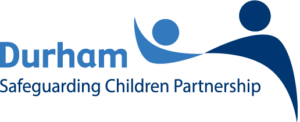Abuse between people living in a family is complicated. Quite often, it is not talked about and no one knows or recognises that it is happening, not even the people who are affected. Domestic abuse happens between anyone over the age of 16 who is or who has ever been in an intimate relationship, between older children and their parents, wider extended family in elder or honour based violence.
Domestic abuse involves many different acts and behaviours. These include physical violence, manipulation, isolation, control, and use of threats and humiliation which harm, frighten or punish a victim.
Children who are affected by domestic abuse can have poor health like tummy aches and headaches, and poor mental health, when they struggle with difficult feelings like anger and sadness. Children who live with domestic abuse can also struggle to concentrate at school and can have behavioural issues and poor engagement. Children and young people who are exposed to domestic abuse have different needs to those of adults. They tend to have greater support needs, are less likely to understand the severity of abuse and have less understanding of what a healthy relationship looks like.
We want to see children living in homes where they feel safe and where the adults can sort out their problems without hurting each other or making the other person really unhappy, sad or frightened.
Domestic abuse affects the whole family, this includes children and/or young people. Also listed below are a range of information sources and practical tools that may support your work with children and/or young people.
In order to appropriately support families, we must also consider the needs of those adults that display abusive behaviours. It is recognised that many abusers will have multiple victims and the impact of their behaviour can cause significant trauma particularly on children and young people who are affected. Listed below are also a range of information sources and practical tools that may support your work.
Information sources
- Domestic abuse (information and help for adults, young people, those who commit it, professionals)
- Durham Safeguarding Children Partnership: Domestic abuse practice checklist.pdf
- Durham Safeguarding Children Partnership: Multi-Agency Risk Assessment Conference (MARAC) referral form
